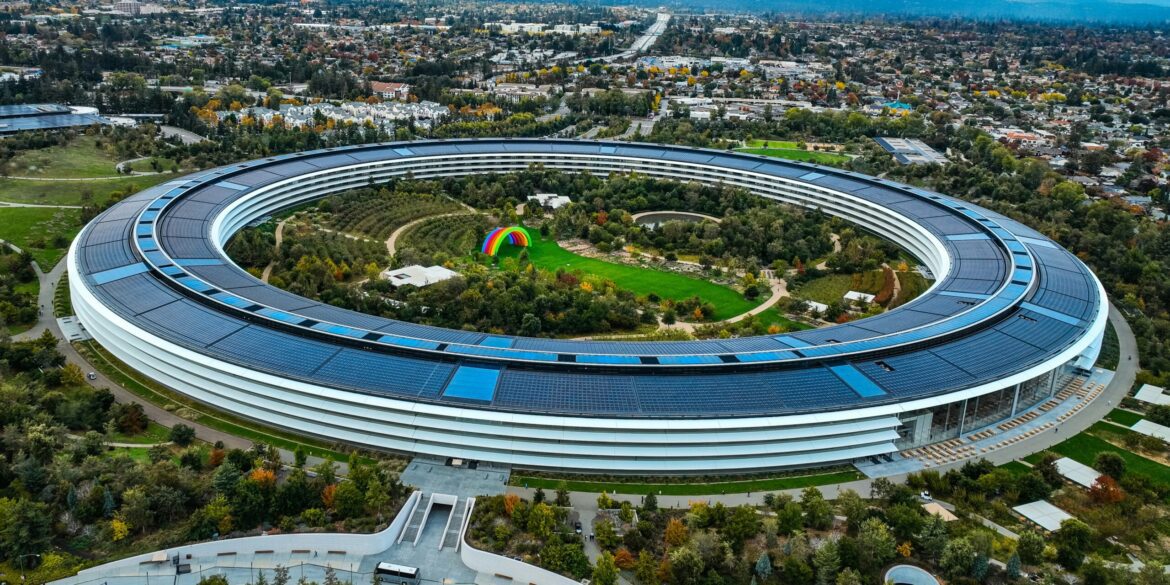At its highly anticipated Worldwide Developers Conference (WWDC) on June 9, 2025, Apple made a groundbreaking announcement, introducing a host of new artificial intelligence (AI) features that could change the way users interact with their devices. The announcement has sparked discussions and speculation within the tech world, especially regarding a potential partnership with industry rival Google. The news has stirred excitement among investors, leading to a slight uptick in Apple’s stock price during premarket trading.
Apple’s latest foray into AI comes at a time when the technology has become a focal point of innovation across industries, particularly in consumer electronics. While the company has been incorporating AI into its devices for some time—enhancing Siri, for instance, and optimizing performance across the iPhone and Mac—this new suite of tools is more advanced and ambitious. The features include enhanced natural language processing capabilities, smarter predictive text, and more robust machine learning algorithms that promise to revolutionize everything from user experience to device efficiency.
One of the most intriguing aspects of Apple’s announcement is its potential partnership with Google, which has long dominated the AI and cloud services space. The rumors of a collaboration have set the tech world abuzz. Both companies are fiercely competitive, with Apple known for its proprietary ecosystem and Google renowned for its cloud computing services and AI advancements. However, the increasing complexity of AI technologies has made it clear that even the most powerful companies in tech may benefit from working together. Google’s expertise in AI and cloud infrastructure could complement Apple’s hardware and software strengths, creating a unique synergy that could accelerate innovation.
The prospect of such a partnership could be a game-changer for both companies. Apple has traditionally focused on maintaining control over its ecosystem, with a strong emphasis on privacy and security. Google, on the other hand, has vast resources in AI development, particularly in machine learning and data analytics. Combining forces in these areas could lead to new breakthroughs that neither company could achieve independently.
This potential collaboration would also have a significant impact on the broader tech industry, particularly in the areas of AI development and cloud services. Apple, historically cautious about its partnerships with other tech giants, may be signaling a shift in its approach to cooperation. If the rumored collaboration with Google materializes, it could lead to more cross-industry alliances in the future, pushing companies to innovate faster in the highly competitive AI space.
The implications of such a partnership extend beyond just Apple and Google. As more and more companies race to integrate AI into their products and services, the need for sophisticated cloud infrastructure becomes increasingly apparent. If Apple and Google combine forces, it could lead to a major disruption in the cloud market, giving them a competitive edge over other players in the industry like Amazon Web Services (AWS) and Microsoft Azure.
For consumers, the potential benefits are equally significant. Enhanced AI features could lead to more intuitive, personalized experiences across Apple’s devices, ranging from smarter Siri functionality to improved app performance. Furthermore, the integration of Google’s cloud services could provide a more seamless experience for Apple users who also rely on Google’s suite of products, such as Gmail, Google Drive, and Google Docs. This alignment between two of the biggest names in tech could offer a more unified and efficient user experience.
Despite the exciting potential, the partnership is far from guaranteed. Both companies would need to navigate a range of logistical, technical, and competitive challenges before they could formally collaborate. Apple has a history of maintaining a closed ecosystem, which has often set it apart from Google’s more open approach. Whether or not both companies are willing to compromise on their core business models remains to be seen.
Furthermore, the partnership could face regulatory scrutiny, especially in light of ongoing investigations into big tech companies. Governments worldwide are increasingly concerned about the power and influence of tech giants, and a collaboration between Apple and Google could attract the attention of antitrust regulators. Both companies would need to carefully consider the legal ramifications before moving forward with any formal agreements.
In the wake of Apple’s announcement, the market has responded with cautious optimism. Apple shares saw a slight increase in premarket trading, reflecting investor confidence in the company’s continued focus on innovation and AI. However, analysts remain cautious, noting that while AI holds great promise, the competitive landscape in this space is evolving rapidly, and success is far from guaranteed.
As the dust settles after WWDC 2025, all eyes will be on Apple and Google to see whether they will indeed formalize a partnership. If they do, the impact on the tech industry could be profound, ushering in a new era of innovation in AI and cloud computing. For now, the speculation continues, but one thing is certain: the future of AI technology just got a lot more interesting.

